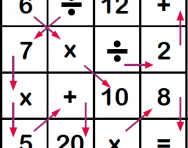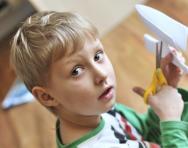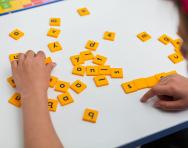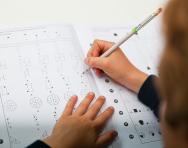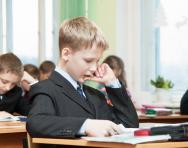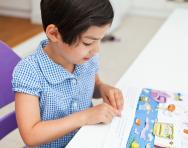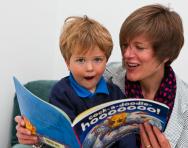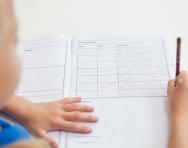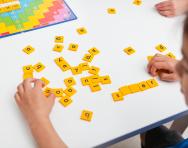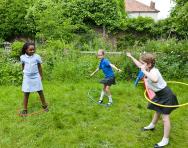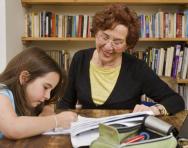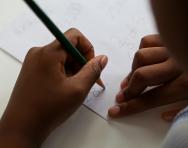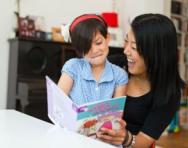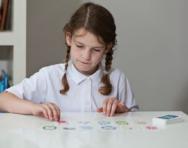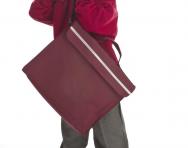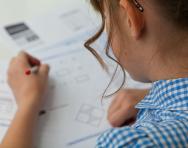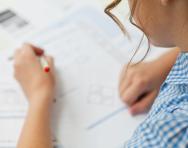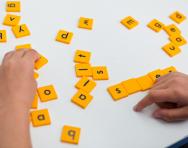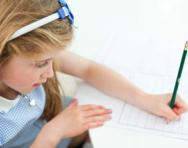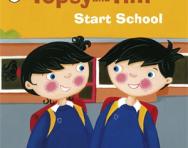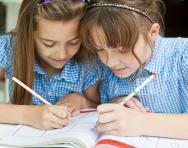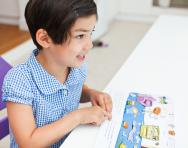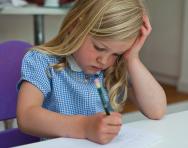School life articles
7 common school life problems solved
Every parent wants their child to be happy at school, but what if there’s a problem? Here’s our step-by-step guide to tackling and resolving some of the common issues that might crop up in primary school.
12 great benefits of maths challenges
Maths activities could give your child’s learning a boost in many ways, and help them engage with numbers (and enjoy it!) from a young age. Lucy Dimbylow offers 12 reasons to give number puzzles a go today.
5 at-home design and technology projects for primary children
Design and technology is part of the national curriculum. Teacher and parent Phoebe Doyle offers some practical D&T project ideas and suggestions to help your child get hands-on, boost their confidence and have fun (and make mess!) with materials at home.
5 primary school art projects to try at home
Art is part of the national curriculum and one of the subjects your child will be taught at school. Teacher and parent Phoebe Doyle offers some practical project ideas and suggestions to help expand their knowledge and experience at home.
Encourage a love of drama and the stage
Whether your child is a diva in the making or more inclined to be backstage crew, drama and acting could help develop skills that will offer a boost in many areas of life, says Lucy Dimbylow.
10 ways word puzzles can help your child
Crosswords, word searches and hangman aren’t just handy ways to keep your child quiet for five minutes; they could also boost their learning in some surprising ways. Here’s how…
Best time-teaching products
Great toys, books and resources to help your child learn to tell the time on analogue and digital timepieces, from clock face recognition to estimating time differences on the 24-hour clock.
8 facts all parents should know about the 11+ exam
Lesser-known facts and tips for 11+ parents and children, from fluctuating pass marks and tutoring to the Late Transfer Test and SEN arrangements. Olivia Holcombe reports.
The beginner's guide to the 11+
Is your child due to take the 11+ exam at the beginning of Year 6? Find out more about grammar school selection exams, how they differ across the country and the literacy and numeracy topics children are tested on.
What is a free school?
How do free schools differ from standard primary schools? How do they operate and what do they teach? If you’re thinking of sending your child to a free school, or just want to know more about them, here’s a brief parents' guide.
Starting school: keeping up the momentum in Reception year
So they’ve flown the nest... well, until the school run that is! Primary-school teacher (and parent of a Reception child) Phoebe Doyle offers some advice on keeping motivation maxed and avoiding tears during this most crucial of school years.
Choosing a secondary school: 10 crucial questions to ask
When you're faced with finding the best secondary school for your child it can be easy to focus on schools' settling-in strategies for Year 7 pupils, but it's vital to look beyond these initial worries and seek answers to questions which will affect your child several years down the line. Moira Holden reports.
Holidays in term time: the parents’ guide
Once your child is at full-time school, cheap term-time holidays become a thing of the past. But who sets school term dates, and is taking your child out of school for a family break really a big no-no? TheSchoolRun explains.
Foundation stage assessment levels explained
Struggling to make sense of your Nursery or Reception child’s school report? We explain how to decode those baffling assessment levels.
The primary school National Curriculum in England explained for parents
TheSchoolRun explains everything parents need to know about the National Curriculum for English primary schools.
Book reports: what parents need to know
Helping your child engage with their reading matter and improve their literacy skills, book reports are a homework staple. So what’s involved, and how can you make them easier for your child? Lucy Dimbylow explains.
The parents’ guide to after-school childcare: out-of-school clubs
Convenient and cost-effective, out-of-school clubs can be a good solution to the before- and after-school childcare dilemma. So what do you need to know before you sign up?
The parents’ guide to after-school childcare: childminders
With a home-from-home environment and smaller numbers than an after-school club, childminders are a popular choice for after-school childcare. Here’s what you need to know.
The parents’ guide to after-school childcare: relatives
Getting a grandparent or other family member to provide after-school childcare can be a dream come true – or a bit of a nightmare. Lucy Dimbylow looks at the pros, cons and practicalities.
What is an academy?
More and more primary schools in England are converting to academy status. If your child’s school is planning to make the transition, what could it mean for them?
What are inverse operations?
Inverse operations are opposite operations – one reverses the effect of the other. In primary maths we talk about the inverse to explain how addition and subtraction are linked and how multiplication and division are linked. Teacher Alice Hart offers examples of how and when your child will be asked to use the inverse operation in school, and practical ways to help them understand the concept.
Your child's new school year preparation plan
Each year group brings fresh challenges in literacy and numeracy. Want to give your child a head start? Primary teacher Phoebe Doyle offers some easy-to-action advice on tackling an objective from the year group your child is about to enter during the summer break.
Learning tips for kinaesthetic learners
To you, they might look like a fidget, but your child’s restlessness could actually be helping them learn. Find out more about the theory of kinaesthetic learners and how learning styles might be discussed during your child's time at primary school.
How to help your auditory learner
If your child prefers reading aloud, is always talking to themselves and provides a running commentary of everything they do, they could be an auditory learner. We explain what the learning styles theory suggests and why you might hear about t during your child's time at primary school.
Is your child a visual learner?
Does your child have an obsession with highlighters, or spend hours looking at YouTube videos about their latest class topic? They might be a visual learner. Read our guide to the theory of learning styles and how it might be mentioned during your child's time at primary school.
Cool classics: Latin and Ancient Greek at primary school
If your child is often heard incanting Harry Potter spells, he’s probably familiar with a few Latin words already. But could Latin or Ancient Greek be on his school syllabus next year? Lucy Dimbylow looks at the benefits of learning classics, and how to get started at home.
17 things you don't want to find in your child's bookbag
Buying your child’s first bookbag and seeing them carrying it proudly when they start school is a special moment. And it can be wonderful when they use it to bring home great ‘masterpieces’ that they have produced in the classroom. But before you know it, the bag has got covered in mud, drink stains and felt tip, the Velcro has stopped sticking, and holes have appeared in the corners. And you soon start to dread what you might discover when you open it... Rachael Newman-Sanders peeks inside.
What are national curriculum levels?
In the past, primary school children taking SATs were given their results as a National Curriculum level. But what did these numbers actually mean? Lucy Dimbylow explains the grading system used in primary schools until September 2014 in parent-friendly language.
National Reading and Numeracy Tests explained for parents
All children in Wales from Y2 to Y9 take tests in reading and numeracy at the end of each school year. Find out what these tests involve, and how you can help your child prepare for them.
Chess: the perfect game for kids
It’s free, portable, quiet enough to play anywhere and has powerful brain-boosting benefits for kids – and it’s fun, too. Here’s why you should get your child hooked on chess.
5 ways to raise an enterprising child
As parents we have a vital role to play in inspiring an enterprising attitude in our children, nurturing characteristics from an early age which will help them grow into happy adults. Lorraine Allman shares some easy, practical tips to help boost children's self-belief and confidence.
6 steps to a money-savvy child
We all want our kids to have the very best future, and ensuring they’ve got money sense is crucial to help make it happen. Mum-of-two and financial whizz Emily Richards shares a few down-to-earth strategies to equip your child with money management skills for life.
Simple ways to make spellings fun
If your child’s spellings have become the bane of your week-end it’s time to take a look at how you tackle the weekly-test challenge. Teacher Phoebe Doyle offers 10 suggestions to help make spelling practice more playful than stressful.
What is the Y6 Grammar, Punctuation and Spelling test?
Year 6 children are all tested on their spelling, punctuation and grammar as part of the KS2 SATs. So what will your child need to know, and how can you help them brush up their skills? By Lucy Dimbylow.
Best books about starting school
‘Big School’ can seem like an overwhelming place to Reception starters. Make the school-gates goodbyes a little easier by helping your child find out all about school, from lunch boxes to reading corners and name pegs. Here’s our pick of the best starting-school reads to look through together.
Beat back-to-school nerves
Many children feel a bit nervous about the start of a new school year, but for some, the jitters continue beyond the first few days. Here’s how to help your child de-stress if they’re finding going back to school a struggle.
You know you’re a primary school parent when…
Having a child at primary school grants you access to an exclusive club. Here’s what the members all have in common, says Lucy Dimbylow.
Best labelling solutions for school
Wish there was a labels fairy to transform the uniform pile into a neat stack of personalised clothing? Whether you’re super-organised and spread your labelling over the holidays or prone to last-minute panics and label-sewing all-nighters, these products are designed to help you get the job done – and look great, too.
Reading primary school Ofsted reports: teacher tips for parents
Whilst many of us don’t get to actually choose which primary school our children go to, it always helps to be well informed about a school’s ethos and achievements. Teacher and education writer Phoebe Doyle offers advice on reading Ofsted reports, questions to ask and what to look out for during school visits.
Handwriting practice: what all parents need to know
If you’re worried about your child’s handwriting and want to help them improve, you’re not alone – handwriting is an essential skill, but we all have to learn it, and it’s a very complex task. Legible, neat handwriting takes lots of practice – here are a few things to keep in mind when you’re working with your child at home.

